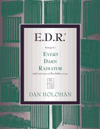HARDI board of directors approved the restriction of up to $500,000 of HARDI’s reserve funds to establish a new “Legal Defense Fund” in case litigation is necessary to overturn policies that can have a negative impact on HVACR wholesale-distribution.
Increased federal and state regulations have always affected the HVACR industry and specifically the wholesale-distribution channel, however HARDI has growing concerns about regulators exceeding the statutory authority granted to them by lawmakers. These new legal defense funds may be used in an anticipated lawsuit against the federal government on the new EPA HFC allocation rule that bans single use cylinders and imposes a mandate for QR code tracking on cylinders. The new rule will have an especially adverse impact on HVACR wholesaler-distributors and their customers. The US Department of Energy also recently signaled potential intent to initiate new standards on residential gas furnaces beyond their current statutory authority.
“We are seeing a much different regulatory environment than previous administrations, with so many potential threats to our members we believe it is time to be pro-active in preparing for future litigation to protect HARDI member businesses.” said HARDI CEO, Talbot Gee. “We are proud that we are in a place financially that we can confront immediate issues like this head on and fight for the overall betterment of the HVACR channel and industry. We also want to establish something financially sustainable for additional problems that may arise beyond our immediate future. Methods for voluntary contributions to this legal fund are also being established so our members can individually support our efforts to do everything necessary to protect wholesale-distribution as the channel of choice.” Gee continued.
The fund will be continuously replenished as needed through a combination of voluntary contributions from HARDI members and adjustments to HARDI’s reserves investment policies to ensure the association is always prepared to fight future overreaches by a government authority.








